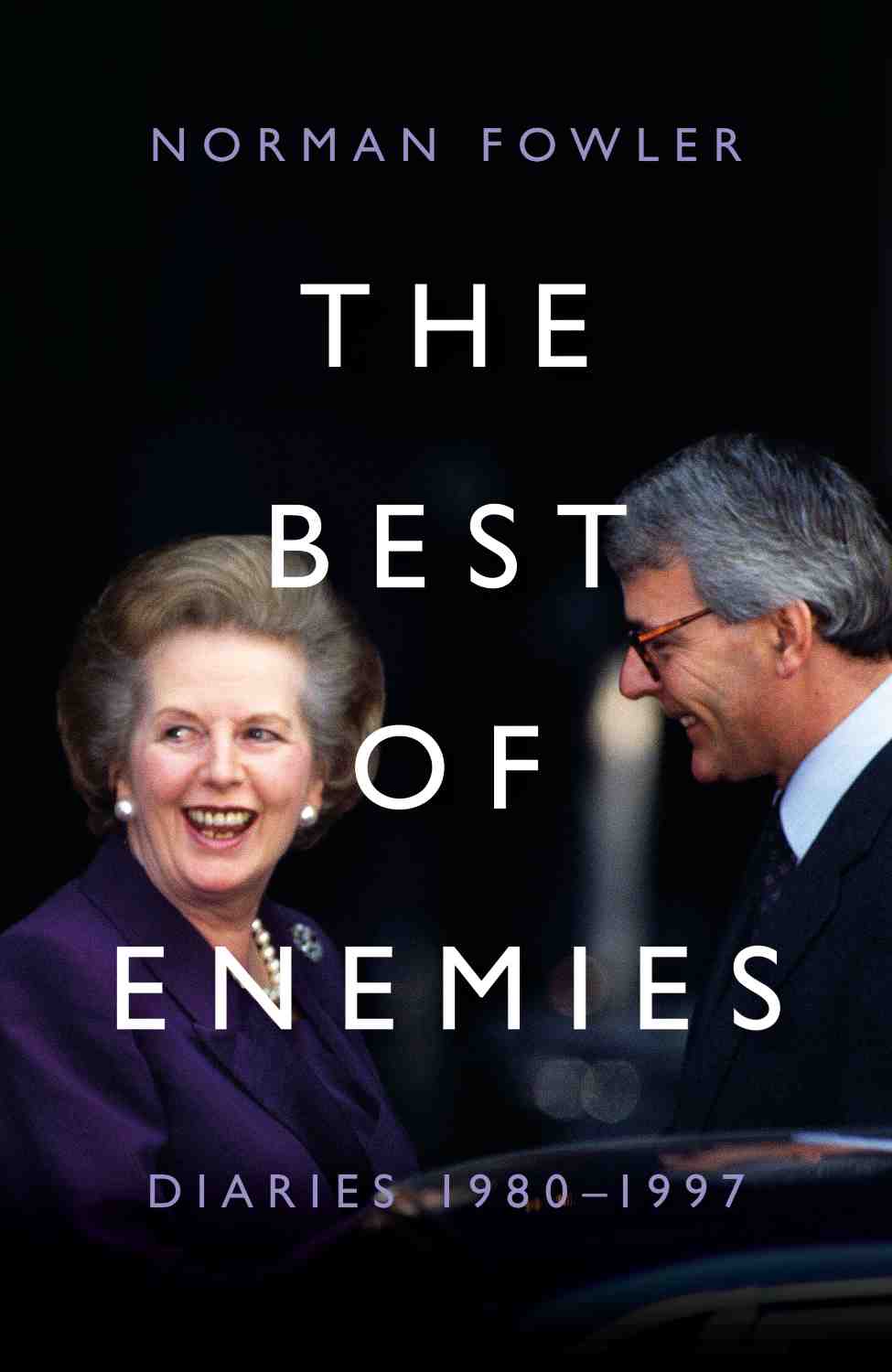'Perceptive and honest': Lord Young reviews 'The Best of Enemies: Diaries 1980–1997'
Bournemouth, October 1986: Margaret Thatcher with Norman Fowler at the Tory Party Conference | Image by: PA Images / Alamy Stock Photo
3 min read
Ambitious young politicians have much to learn from Lord Fowler’s diaries – despite the occasional lapse in diplomacy
Connoisseurs of Gilbert and Sullivan operas will know that they have two titles – HMS Pinafore, or The Lass that loved a Sailor; Ruddigore, or The Witch’s Curse. These secondary titles often give a more accurate clue as to what the opera is about.
So with Norman Fowler’s book. The Best of Enemies is the headline, between pictures of John Major and Margaret Thatcher. Underneath in small print: Diaries 1980-1997. Continuing the operatic theme, there is indeed a leitmotif in the second half of the book of the tension between the two prime ministers, but the bulk of it are the diaries. Perceptive and, unlike memoirs, not subsequently embroidered to show the author in a more favourable light.
Norman analyses the deteriorating relationship between Major and Thatcher after 1990, when she backed him for leader. A tragedy, as they each owed so much to each other. Margaret was responsible for John’s meteoric rise into cabinet, ahead of the Waldegraves and Pattens of his intake. Without that head start, he would not have succeeded her. He, in turn, secured the Thatcher reforms of the 1980s by winning the 1992 election – which she would certainly have lost – saving them from immediate repeal and leaving her with no legacy.
The most interesting section is his battle with Thatcher to publicise the risk of AIDS
When he left government, his diaries record he was called the “Quiet Revolutionary”. Not absolutely accurate – Norman’s conference speeches were far from quiet as he roused the audience to its feet. Nor was he a revolutionary. But he was a highly competent secretary of state, privatising large chunks of the Department of Transport ahead of the better-known subsequent privatisations. He ran the Department of Health and Social Security with four other ministers. It has since been split into two, with six ministers in each.
 The most interesting section of the diaries is his battle with Margaret Thatcher and others to publicise the risk of AIDS – a brave initiative, which others would have ducked, and arguably the achievement for which he will be remembered.
The most interesting section of the diaries is his battle with Margaret Thatcher and others to publicise the risk of AIDS – a brave initiative, which others would have ducked, and arguably the achievement for which he will be remembered.
Norman defied Enoch Powell’s prediction that all political careers end in failure. He left office in 1989 at a time of his own choosing, with his reputation not just intact but enhanced. And he went on to be chairman of the party and lord speaker. Ambitious young politicians have much to learn from these diaries.
But Norman, should you have toned down some of your more trenchant criticisms: arrogant, pathetic hangers-on, too bossy by half, toad, jerk, nitwit? Many of those fingered are still alive – and some of them sit quite close to you in the House of Lords!
Lord Young of Cookham is a Conservative peer
The Best of Enemies: Diaries 1980–1997
By: Norman Fowler
Publisher: Biteback
